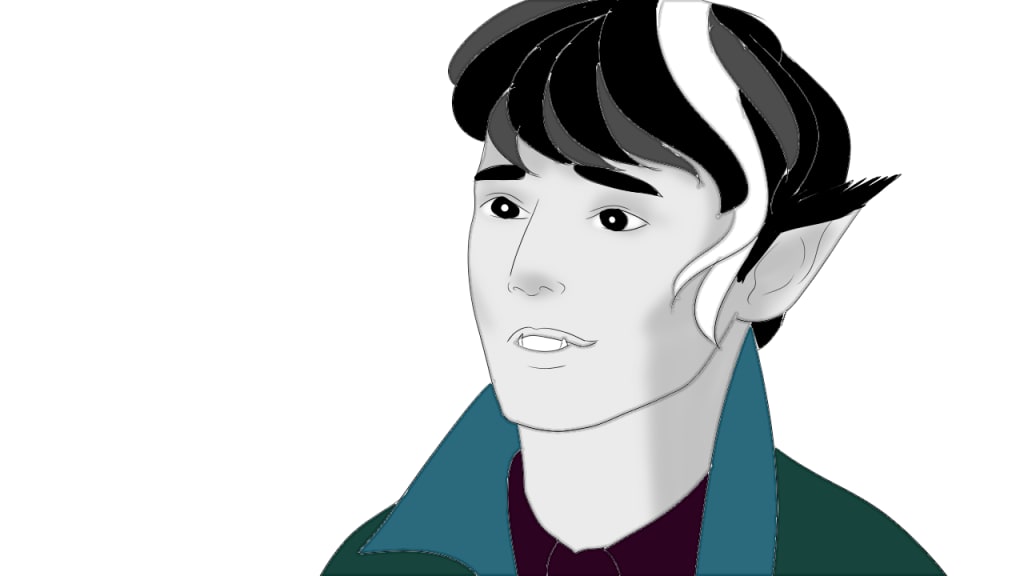What's in a Character?
Who are they and what do they want?

Like a lot of writers during this time of the year, I'm participating in NaNoWriMo. If you don't know what that is, it's a challenge writers participate in every November to write 50,000 words in 30 days.
I know. We're not sane.
Recently, one of the more challenging aspects of creating a story has been developing characters.
I know what you're thinking.
Fey, you have, like, 14 days left until the end of November and you're telling us that you don't even have your characters straight?
I get it; it's a risky move. Then again, what part of writing 50k words in a month doesn't sound risky?
Part 1 - Where Do They Come From?
If you're like me, your story idea starts with a hazy, one-lined plot. A kingdom is imprisoned by a power-hungry wizard. An island full of fairies finds itself facing a natural disaster. Simple examples, sure, but you get the idea.
Sometimes it's not even that. Sometimes it's just a message you want to get across. Bullying, tyranny, the dangers we put ourselves in. Whatever happens that gets you to start a story, one way or another, you end up needing characters to tell those stories.
So what's in a character?
To put it simply... it's you, isn't it?
I've found that in all of my work, the characters are different parts of me. Sure, I could base them off family members or close friends, but in the end, they're all different sides of me taken apart and given names.
My personality—and I'm sure I speak for other writers—shows through every main character and side character. Their wants or their passions—all of it stems from me.
Take Niq Semblance, the adorable werewolf in the picture. With a natural green thumb and quiet by nature, he showcases the passions I have, but prefer to keep quiet about.
And it's not that I'm trying to make the story about myself; that's not it at all. Rather, as writers, our characters are our ways of expressing ourselves. They're our stroke of a paintbrush or the notes to a song.
Part 2 - Who Are They?
I've read and have been told this one piece of advice: What does your main character want and what is stopping them from getting it?
All's well and good with that one, and keeping that question in mind has helped with plot and character development in general.
But what I find that a lot of people miss when developing character personalities is that defining trait. Who are they? What would they call themselves?
Think of it; the first thing a reader associates with significant characters is their title. Harry Potter is The Boy Who Lived. Katniss Everdeen is The Girl on Fire. Simple titles with layers of meaning and symbolism on the characters themselves.
This part takes a bit longer to cement than the first part. You really ought to know your character and what they stand for at that point. Titles can always extend and be added on to (i.e. Daenerys of the House Targaryen, the First of Her Name, The Unburnt, Queen of the Andals, the Rhoynar and the First Men, Queen of Meereen, Khaleesi of the Great Grass Sea, Protector of the Realm, Lady Regent of the Seven Kingdoms, Breaker of Chains and Mother of Dragons), but once it's latched on, it's hard to remove.
It doesn't have to be so poetically sounding, either. Sometimes I think that writers don't recognize how big their main character's names would be until after it's received by the public. For example, I have a character in my work in progress Eternity Glass titled, "Fallon the Unbreakable," and another called "Zafiro the Ecuidao."
See? One is even a made up word that translates to Dragon's Heir. Out of context, it probably sounds simple and maybe overused or cliche.
So long as you connect it to your story in a way the readers will root for, then you can bet on them, and yourself, knowing the character.
Part 3 - What To Do With Them
This one is probably the most challenging part of a character arc: where to end them.
It makes me sad to think I'll have to end my characters' stories someday. For the most part, they're all still young and they have so much ahead of themselves. It's natural for authors to fall in love with their characters; actually, I'd be worried if they don't.
Still, all good things must come to an end.
Actually, I guess the way you can think of it is... it's not the characters that are ending. It's the story. That message you wanted to tell from the beginning; that part is over.
For me, the ending is one of the first things I think about for my characters, especially the main ones. I want to know where they'll go and who they'll surround themselves with.
But honestly? You get there when you get there.
I joke with my other writer friends about how our characters are like actual children. You birth them and raise them, even making them look like whatever you want them to look like. Soon enough... they're doing everything you don't want them to do.
I mean, how many times have you guys, for example, draft out a few characters and are finally satisfied with who they are, but then once you start the manuscript?
Boom! There's romantic tension. Or, uh-oh, you realize that these two don't get along. And of course, on the rare and sometimes scary occasion, there's a character that's in there that you didn't plan out at all but you found that you already love him too much to take him out of it (yes, if you couldn't tell, I am speaking from personal experience).
Point is, you might not ever know where your characters will end up until you reach that point. Or, maybe you really do know and the problem lies in getting them there. Honestly? I think that's all okay, and it all falls under this piece of advice:
Let them talk to you.
As I said before, they're all different parts of you. Writing them out means getting to know yourself. After ten years of writing... I can say that it can be pretty daunting sometimes. Still, they're your characters. They're you. They'll tell the story the right way in the end.






Comments
There are no comments for this story
Be the first to respond and start the conversation.